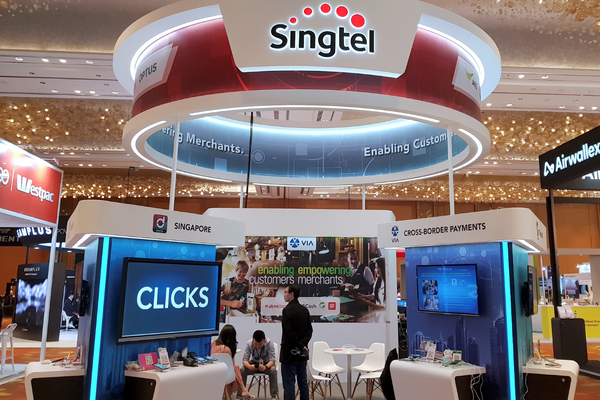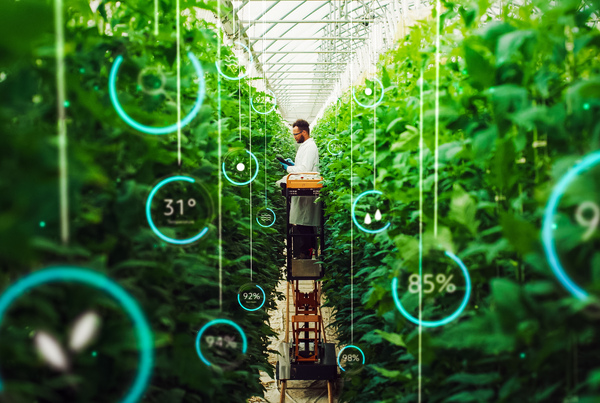The future of business knowledge is here, and it’s generative AI

Alec Boere at Infosys Consulting argues that generative AI will revolutionise the way that businesses operate
Generative AI is taking the world by storm with the launch of Chat GPT-4 and rivals such as Bloom and Google Bard, signaling large language models will become the new way to access information.
Just as the first wave of Google search transformed how we used the internet, generative AI will revolutionise how businesses operate - affecting everything from product development, customer experience, talent and knowledge to values and ethics.
The potential benefits are massive. We’re at the tip of the iceberg of this next phase of AI-enabled innovation. So, what might this new landscape look like, and how should businesses navigate this brave new world?
A powerful knowledge facilitator
First things first - no matter what clickbait headlines might claim, generative AI won’t replace the human workforce. If anything, it will help to enhance it, creating higher value work and helping to bridge gaps in knowledge.
In fact, with numerous industries facing crippling shortages of skilled workers, as this technology develops, it will streamline work and ensure organisational knowledge is easily stored and accessible.
Today’s constant flow of employees makes it more difficult than ever to develop subject matter and organisational experts. By utilising this technology, organisations can start to plug those gaps so that accumulated knowledge is held onto, even if talent leaves.
Businesses can use such AI to search for answers in a similar way that they would look for something on Google. Companies can then point their employees to their company knowledgebase so that staff can access and extract relevant information when needed.
Whether that’s information on setting appropriate KPIs, instant customer support, streamlining operations or even supporting decision making in pushing out a particular product or service, GPT technologies will help protect and restore vital company and industry knowledge.
Enabling next-gen CX
Already, ChatGPT and other similar technologies are shortening timescales for businesses to launch products and services into organisations, and helping them to extract the most value from these.
But it will prove particularly game changing in service-oriented, contact-focused industries – for example, banks, retailers and healthcare firms. We’re already familiar with chatbots, but they are nowhere near the realistic mimicking of human conversation that these new models offer in the delivery of instant and accurate customer support.
Of course, anything that boosts efficiency and effectiveness of customer service pays dividends for businesses, so it is already drawing much interest.
For example, using ChatGPT, organisations can mimic advanced human-to-human conversation, enabling them to provide a ‘next best action’ for consumers with a fluidity not experienced before. This next best action can be determined and personalised through synthetic customer testing. Companies can trial and test conversations with a vast range of consumer profiles and construct various plausible solutions.
Achieving this at scale requires large language models which can be tested efficiently and effectively in a virtual space, identifying customers based on all the interactions you have had, to achieve hyper-personalisation. This is the next level of customer experience, where AI can respond appropriately to a plethora of real-world reactions.
This is especially relevant when it comes to ensuring that AI supports a diverse world, with an approach that helps maintain trust and transparency. Any organisation engaging in AI should have clear policies to ensure its implementation is ethical. For example, businesses must have diverse teams to avoid transferring human bias into the technical design of AI - as the AI is driven by human input.
Companies should also refrain from using outdated data because these algorithms will only amplify past patterns and not design new ones for the future. For example, this was highlighted by the OpenAI Dall.E2 model, which, when asked to paint pictures of startup CEOs, all were male.
Ethical experimentation
We’ve seen rapid adoption in the five months since ChatGTP was launched, but to get it right and make the most of generative AI’s benefits, businesses need to ensure they are across all perceived and potential risks. Otherwise, they could fall at the first hurdle if they don’t take the proper steps to lay the foundations correctly at the implementation stage.
As with all new technologies, responsibility must be at the forefront when implementing AI models. To make it work for employees and customers alike, trust must be at the centre of their approach. This means ensuring AI models must run without bias to treat consumers and employees fairly, safeguarding customers’ personal information and complying with all legal and regulatory environments.
Then comes business accountability and explainability for the model’s decisions, followed by inclusivity and societal benefit.
Technologies like Chat GPT have massive potential in work and beyond. Its purpose is to facilitate how we access knowledge, helping people become more effective and efficient with their time. As it develops, we will see it used as our ‘personal AI’, understanding what we want and what options are available across numerous areas, from offering personalised financial advice to helping address workplace challenges.
For businesses, it’s a massive enabler – shortening timescales to launch products and services into organisations and helping them to extract the most value from these.
Ultimately, we’re only just starting to scratch the surface when it comes to exploring the potential of this AI, and those companies that approach it with open-minded curiosity and an appetite for ethical experimentation will undoubtedly reap the greatest benefits.
Alec Boere is Associate Partner for AI and Automation, Europe at Infosys Consulting
Main image courtesy of iStockPhoto.com

Business Reporter Team
Most Viewed
Winston House, 3rd Floor, Units 306-309, 2-4 Dollis Park, London, N3 1HF
23-29 Hendon Lane, London, N3 1RT
020 8349 4363
© 2025, Lyonsdown Limited. Business Reporter® is a registered trademark of Lyonsdown Ltd. VAT registration number: 830519543





